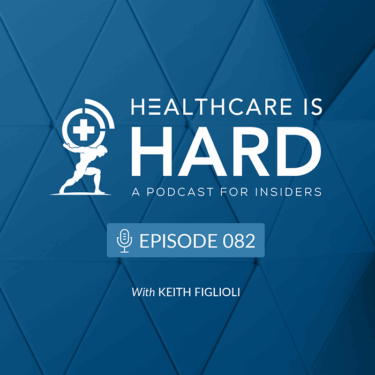
Dr. Josh Mandel says his first love was software. But on a whim, while studying computer science and software engineering at MIT, he took a course that opened his eyes to the world of medicine and genetics. It changed the trajectory of his career away from software – but only temporarily. He entered medical school after earning a bachelor’s degree in computer science and began rotating through Boston-area hospitals at the same time Meaningful Use accelerated adoption of electronic health records.
With a background in computer science and training as a physician, Josh understood the promise of EHRs, how medical professionals would actually use them, and how to make them better. Based on his unique combination of expertise, Josh took it upon himself to begin making improvements to the systems at the hospital where he worked.
Nearly two decades later, Josh is now Chief Architect for Health at Microsoft Research. In this role, he focuses on developing an ecosystem for health apps with access to clinical and research data, leading standards development for data access, authorization, and app integration.
For the third and last episode in this Healthcare is Hard series, Keith Figlioli spoke to Josh about data interoperability and emerging technologies. This conversation follows previous episodes with Epic’s head of R&D, Seth Hain in Part 1, and the Interoperability Practice Lead at HTD Health, Brendan Keeler – also known as the “Health API Guy” – in Part 2.
Some of the topics Keith and Josh discussed include:
- The standards landscape. At Keith’s request to explain the evolution of health IT standards as if he were talking to a seven-year-old, Josh breaks it down in simple terms. He outlines how structured data related to things like allergies, medications, and vital signs are well standardized today, while newer data types like genomics and imaging remain fragmented. He also explains the role of HL7, FHIR, and the Argonaut Project in shaping interoperability.
- How AI flips the script on standards. Josh says generative AI changed the way he thinks about engaging with the standards community. After getting an early preview of GPT-4 a few years ago, he realized that it would dramatically reduce the value of detailed data structure standards over time. He says that as AI becomes better at interpreting unstructured data, the focus will shift from formatting to governance – who can access what, and under what conditions. He described the concept of “language first interoperability” as one initiative he’s working on where automated agents query each other in the equivalent of an email or chat thread. Instead of exposing extensive details upfront, agents that can access unstructured data and understand things like medical necessity and other guardrails can send messages to each other until they make a conclusion about a specific task. This technology will increase the value of standards for data access and privacy, while reducing the focus on interoperability.
- Advice for startups. In a fast-moving landscape, Josh urges startups to “build and explore.” He emphasizes the importance of staying close to customers, iterating quickly, and leveraging today’s best models while keeping an eye on what’s coming next. His advice: don’t get bogged down in yesterday’s limitations—focus on unlocking value now and adapting as the technology evolves.
To hear Dr. Mandel and Keith discuss these topics and more, listen to this episode of Healthcare is Hard: A Podcast for Insiders.
